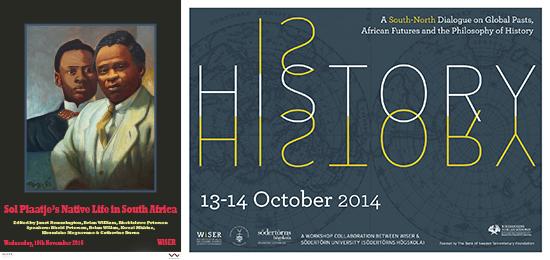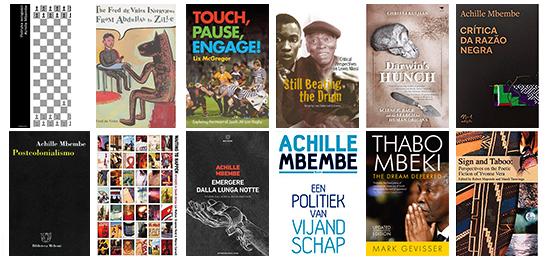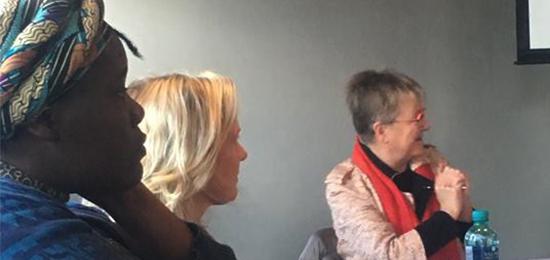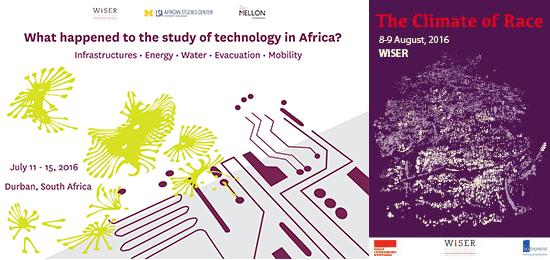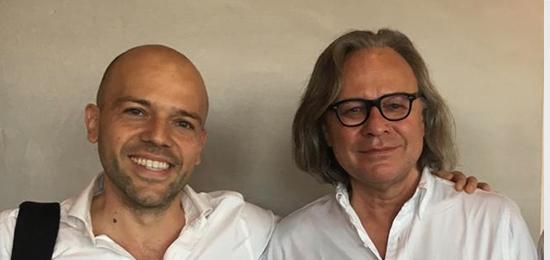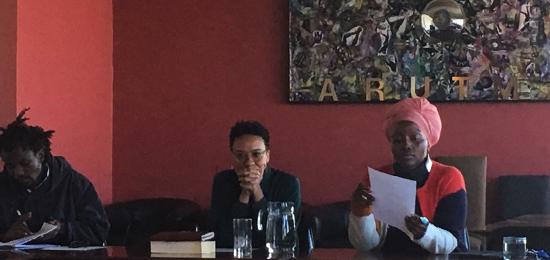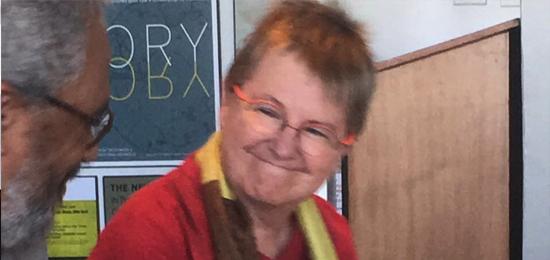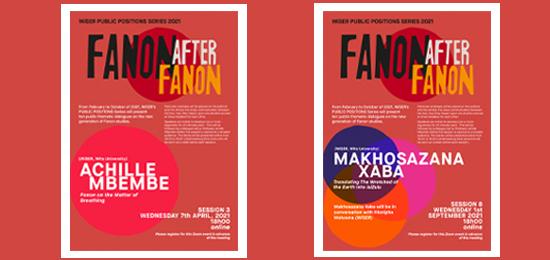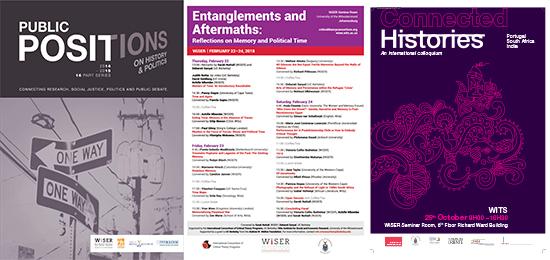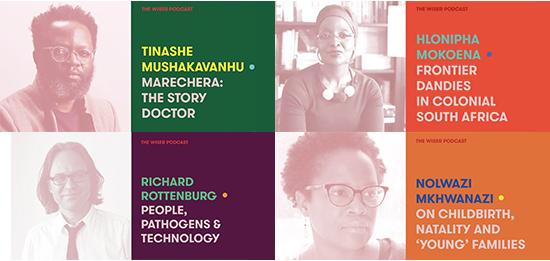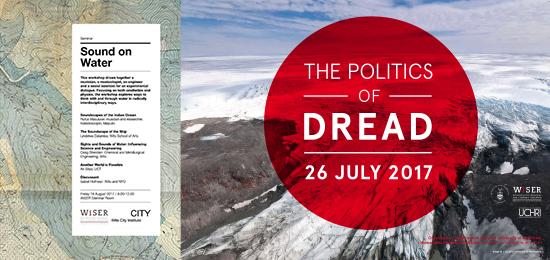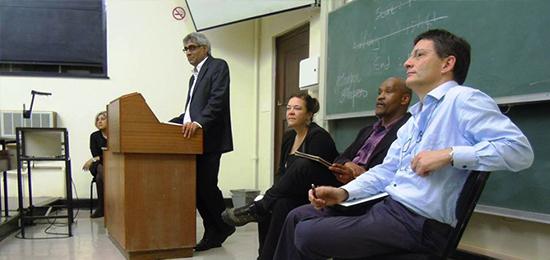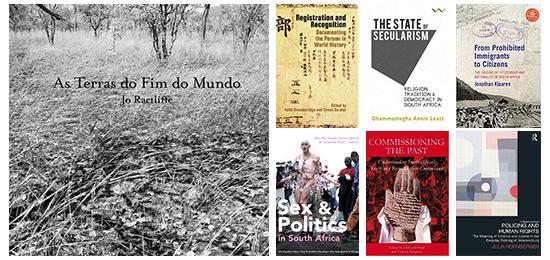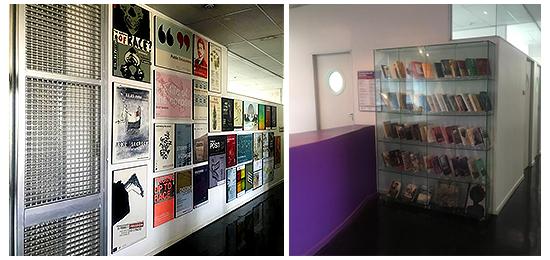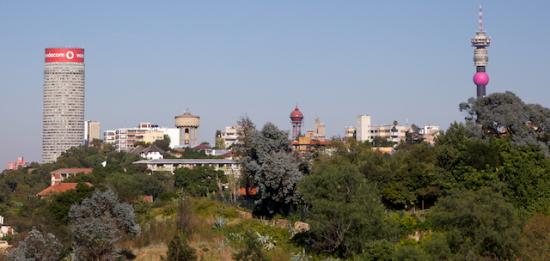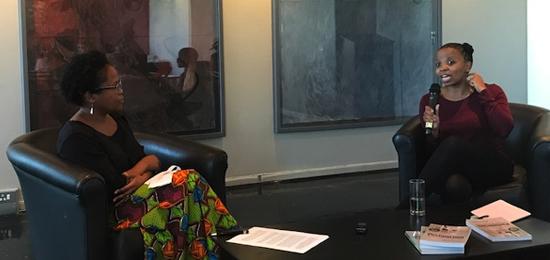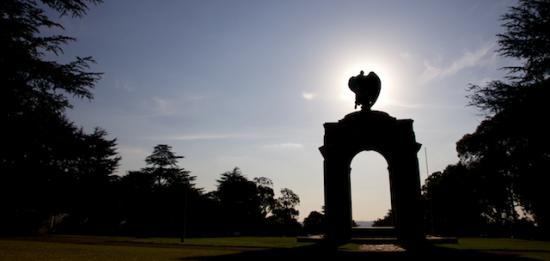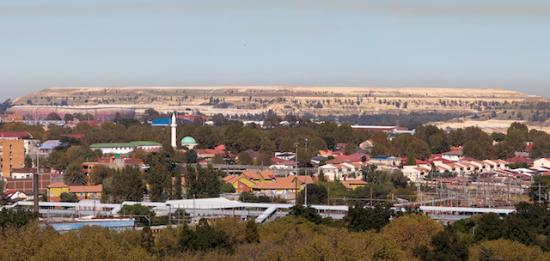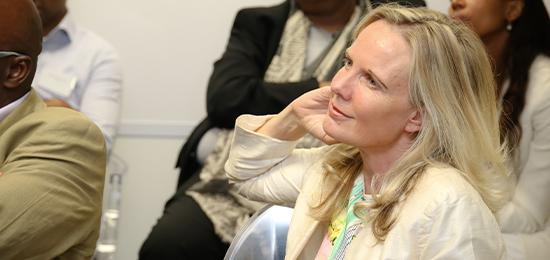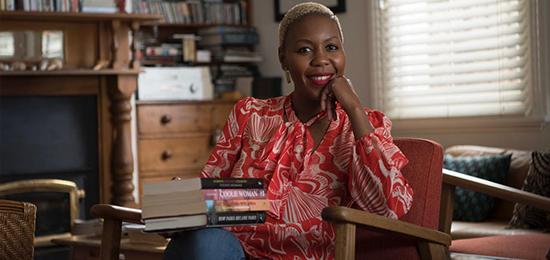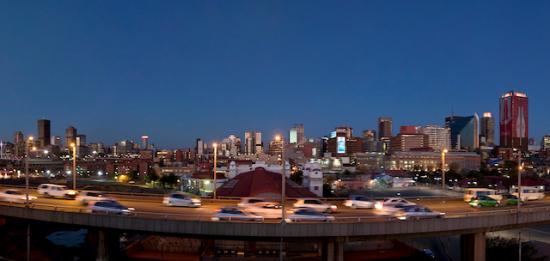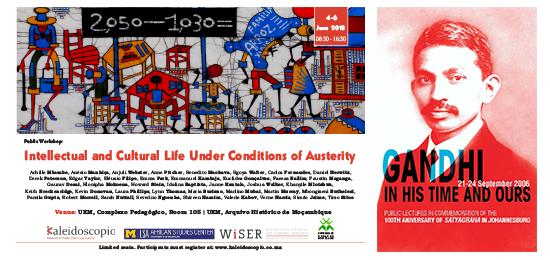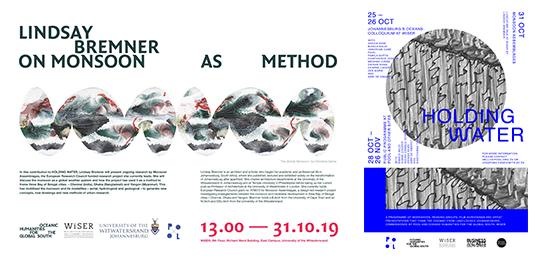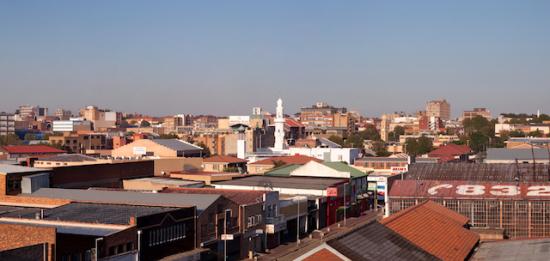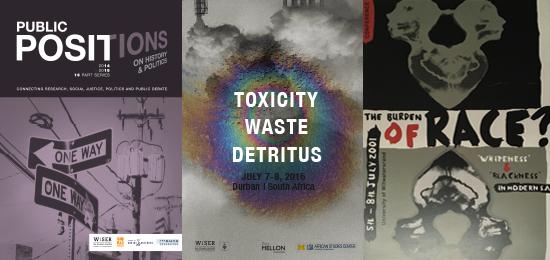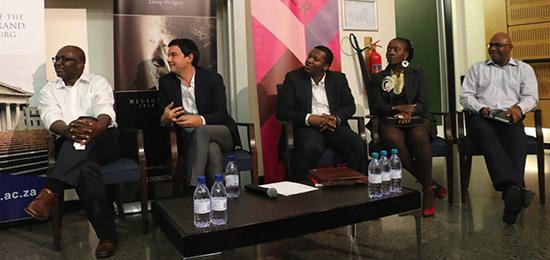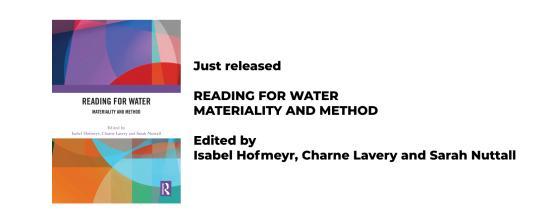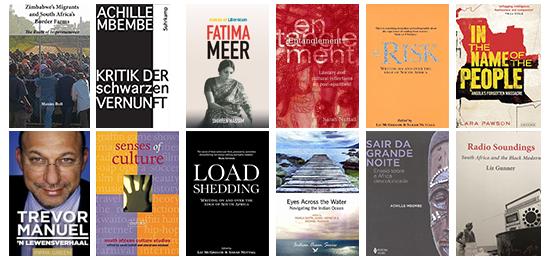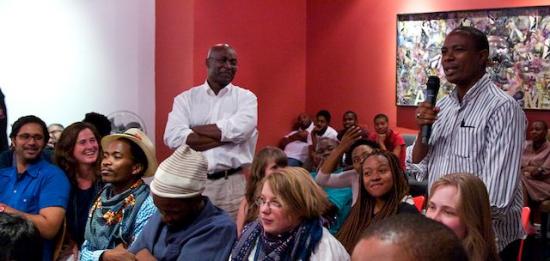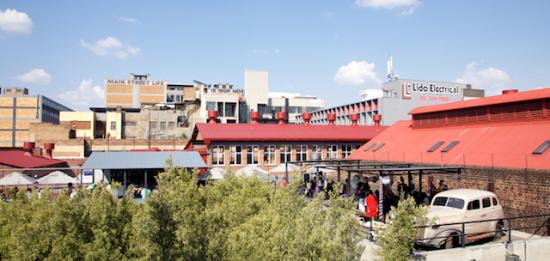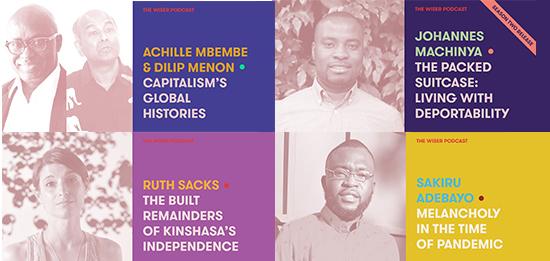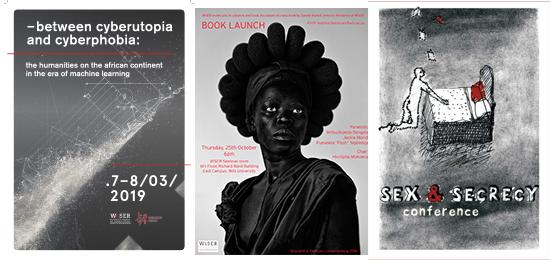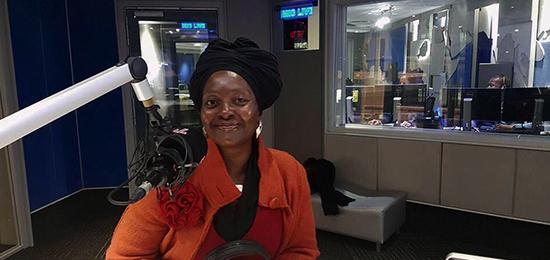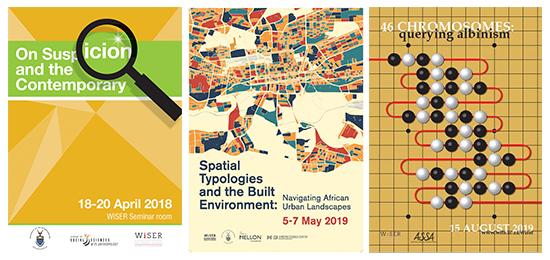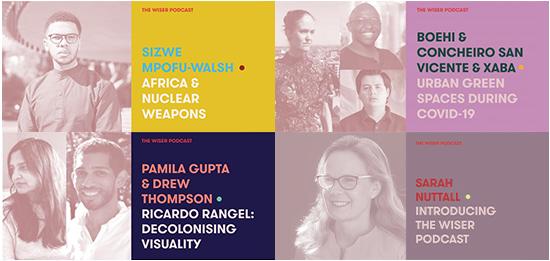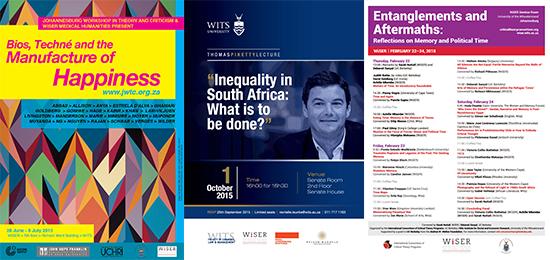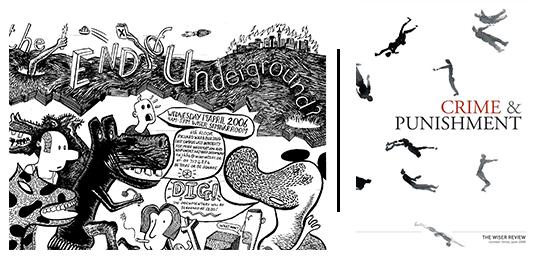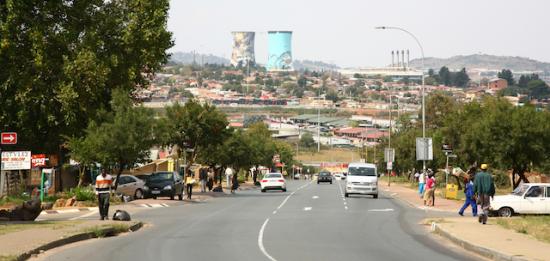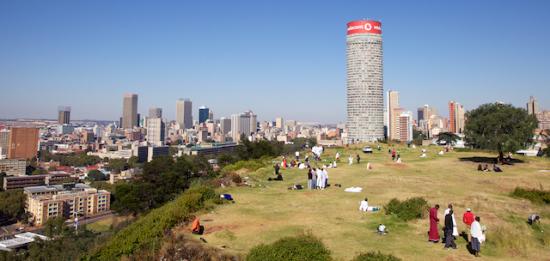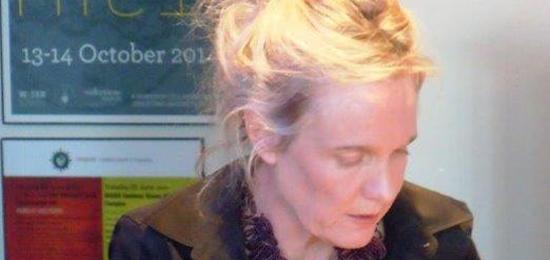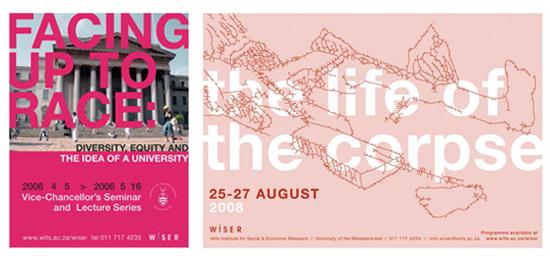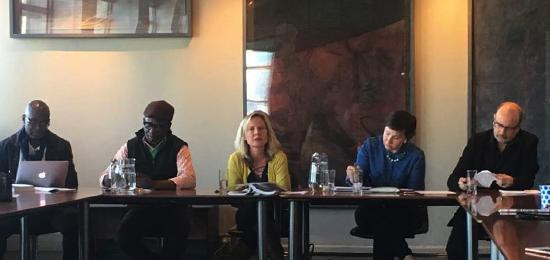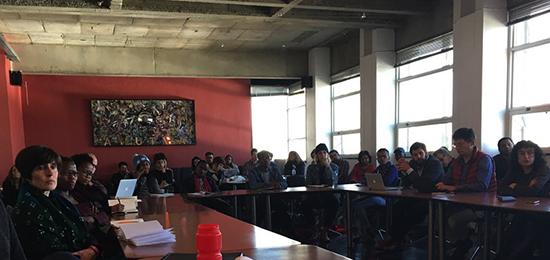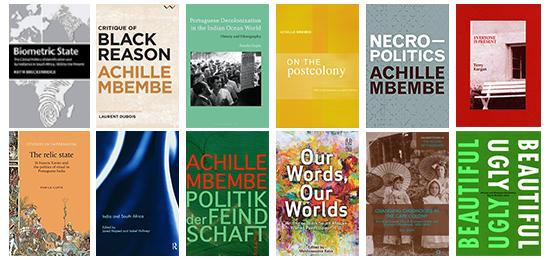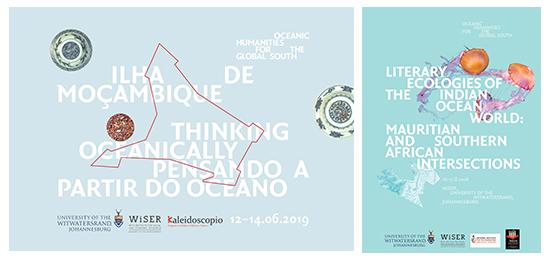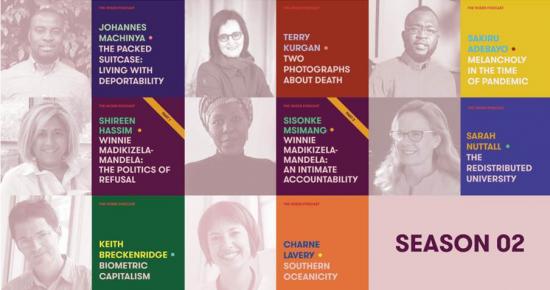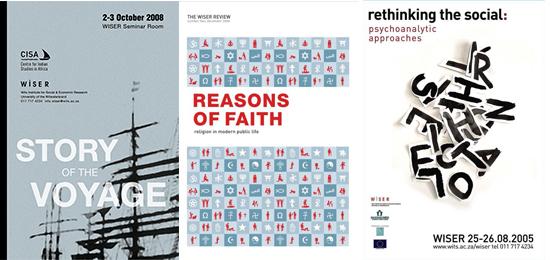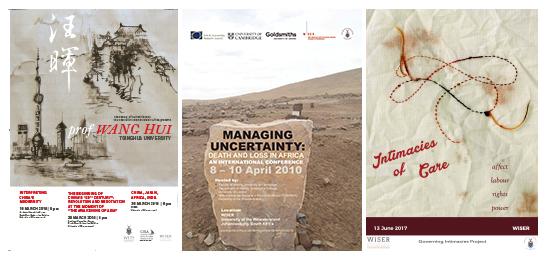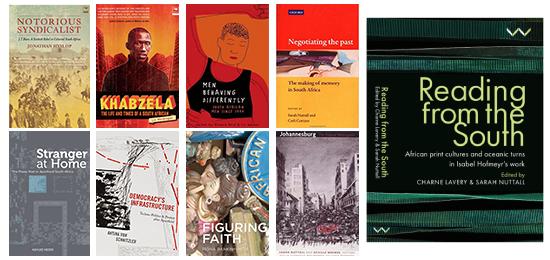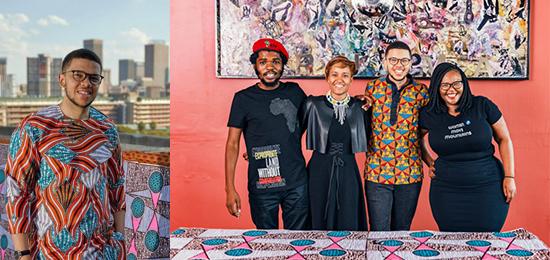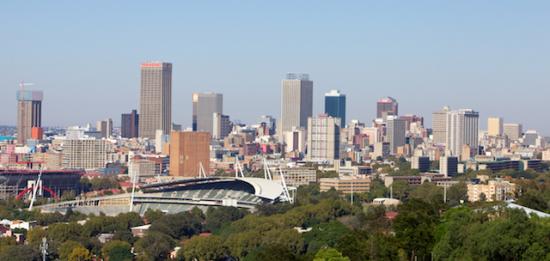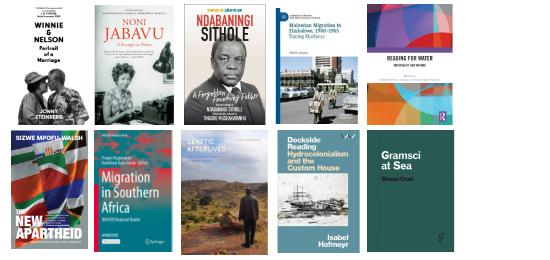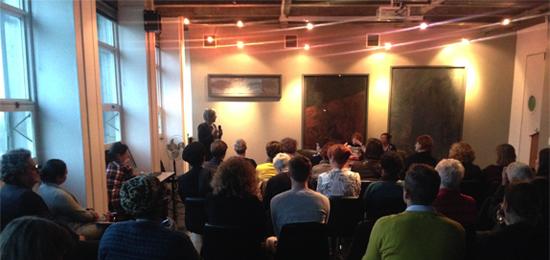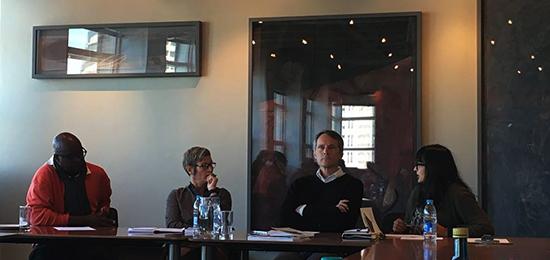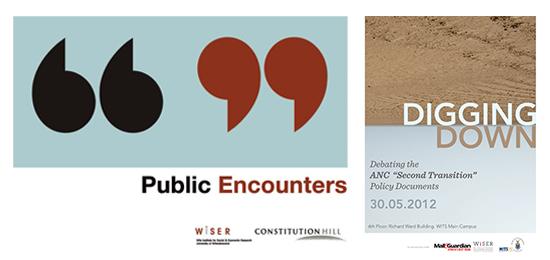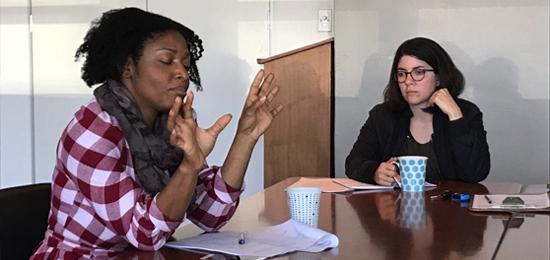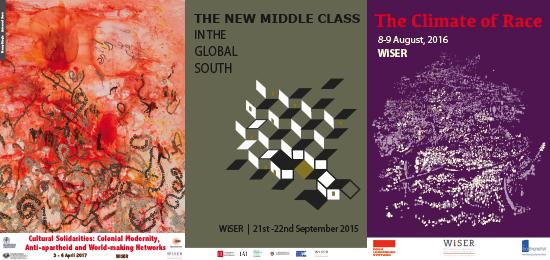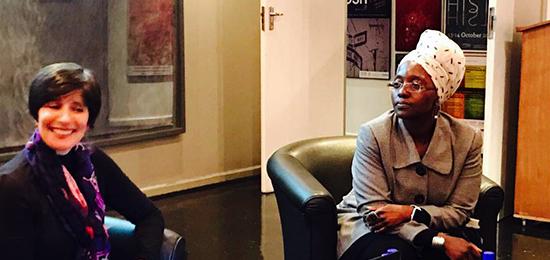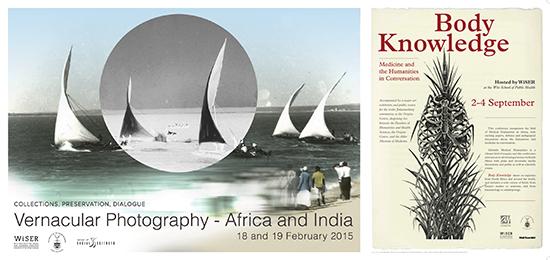WISER Research Themes from 2025
From 2025 WISER's research is organised into the following themes:
- African and Diasporic Critical Thought and Practice
- African Trust Infrastructures
- The City after Mining
- Climate Crises, Uneven Geographies and the Anthropocene South
- Critical Public Humanities
- Digital Humanities
African and Diasporic Critical Thought and Practice
Since its inception, WISER has fostered experimental intellectual practices that engage the pressing issues facing Africa and African worlds. It has encouraged fruitful encounters between canonical critical theory and traditions of thought emerging from the Global South and in particular from the continent and its diasporas. In the past its foci in this research thrust have included engaging key thinkers in African scholarship to speak at WISER via its Public Positions programme (ADD LINK) and a focus on regional rubrics, specificities and solidarities via its Regions2050 project (ADD LINK). From 2025 onwards, this research theme will explore new foci and directions: a reinterrogation of African thought on democracy, both historical and contemporary, especially as the world at large confronts rising authoritarianism; emerging work on race and racialization; and critical university studies in Africa-based contexts. This theme will privilege theoretically-informed scholarship based on evidence from archives, texts, images, curatorial projects, social activism and other sources. Its focus on democracy, racialization and institutions, especially universities, offers multiple pathways for research and investigation.
This research them is led by Professor Achille Mbembe in collaboration with the Innovation Foundation for Democracy, which he directs, Professor Sarah Nuttall and Dr Laura Phillips.
A pervasive crisis of trust has been obvious for decades in democratic societies. Most attempts to explain the crisis date it to the publication of Robert Putnam's 1993 essay Bowling Alone that diagnosed the collapse of public trust in the US, mainly, as a consequence of the isolating effects of television. After Putnam, all the western democracies, starting with the US but recently including even the Scandinavian countries, have become increasingly dominated by the tribalised public trust that scholars like Peter Ekeh had attributed to the effects of colonialism on the African continent. Since the 1980s, firms and governments have been scrambling to develop network technologies that they hope will repair and strengthen trust, although they generally mean by this that people can be trusted to borrow – often at unsustainable and impoverishing interest rates. These trust infrastructures include Digital Public Infrastructures that combine identification and bank account information, geolocation tools, credit scoring systems, predictive machine learning and, most importantly, biometric identification systems that are familiar to South Africans. They are particularly important and dynamic on the African continent because they address the registration deficit – the absence of paperwork credentials in land, moveable property, people – births, marriages, deaths, addresses – that was one of the key effects of African colonialism. The trust infrastructures are improving the environment for digital lenders, and for tax collectors looking for sources of revenue, but it is not at all clear that they are fostering institutions or practices of trust; the opposite seems actually to be the case as networked digital systems must rely on a systemic mistrust to limit cyber attacks. Yet this is still an important change – trust and credit, as Muldrew and Carruthers, and others, have shown, have long been mutually constructed. In this project, Standard Bank is supporting long term research of the institutional drivers of trust in history and across the contemporary African continent. Researchers in the Trust Chair are working in Ghana, Nigeria, Rwanda, Zimbabwe and in South Africa.
This research them is led by Professor Keith Breckenridge, Dr Laura Phillips and Professor Jonathan Klaaren | The full programme of the Trust Project is at https://wiser.wits.ac.za/trust.
Johannesburg may be the large city most intensively shaped by a mining industry, but there are also many similar cities now, on this continent and elsewhere. For well over a century, the profits and taxes generated by the city’s adjacent gold mines have bolstered some of the city's infrastructures, institutions and families. The city has also long attracted people from the rest of the continent, drawing millions to what Nuttall and Mbembe have described as an elusive metropolis, with its own artistic and intellectual rhythm, intensity and global reach. As the mines have closed, the city – like many industrial centres – confronts formidable problems in maintaining, repurposing and reimagining the rich institutional and infrastructural resources they sustained for decades. The problems extend from reworking the lavish buildings of the city’s core, maintaining its networks of power, energy and transport and sustaining its research and artistic venues. And doing all of this while continuing to extend the city’s infrastructures out into the spaces and the lives of the black majority of its people, long neglected by its segregationist foundations. By their nature democratic processes both enliven and endanger all of these projects, as do the ecological pressures and biological lifeforms with which we share this metropolis. WISER is preoccupied with supporting research in all of these areas.
This research theme is convened by the WISER staff team.
Climate Crises, Uneven Geographies and the Anthropocene South
This research theme focuses on climate transformations and how they impact upon, and are shaped by, literature, the arts, cultural theory and a range of elemental media (Jue). The theme works with an understanding of uneven geographies, susceptibilities and impacts and centres what Samuelson has termed the Anthropocene South. Work within this theme has already been undertaken at WISER in terms of a five-year project on Oceanic Humanities for the Global South, itself building on outstanding Wits humanities scholarship on the Indian Ocean ; a project on re-reading southern African literatures for water (the Reading for Water project); and three well-subscribed online seminar series run from the Institute (Heated Conversations; Breathing In: Air and Atmospheres; and Plant Lives: Critical Plant Humanities - Conversations from the Global South), with more to come and publications already out and forthcoming. We invite scholars across institutions and at all levels who are working on these or closely related themes to participate in this research theme. The research theme is interested in building new and more work in southern comparativisms, a concept also put forward by Samuelson, and attracting regionally-inflected work from the African South.
This research theme is led by Professor Isabel Hofmeyr and Professor Sarah Nuttall.
WISER has long explored ways of turning knowledge-making resources previously restricted to academics on campus into public, generative capabilities available to many more. Instead of trying to export knowledge from campus to society in an ‘outreach’ model often invoked in the United States, a wider public is invited into campus-based knowledge projects to engage with and participate in the means of knowledge production. If the University used to see itself as having a more defined inside and outside, critical public humanities practice potentially expands or loosens those borders via webs or networks that are more mobile. The Institute has experimented with a wide range of pedagogical practices, reaching divergent publics through its podcasts, which have reached nearly 40 000 listeners, its long-term engagements with writers, activists and artists and its crafting of publics facing events that are research-led and generative of public writing. The critical public humanities can play a formidable role and offer significant impetus towards change and transformation in humanities research, debate, speaking and writing. In 2025 WiSER will continue to build on its archive of public humanities work and to invite reflection on public humanities practice.
Taking the lead on this research theme is Professor Sarah Nuttall.
WISER has been working in the area of digital humanities, and on the linked intellectual problems of the archive and digital media, for the last decade. With generous funding from Mellon, WISER coordinated funding and technical support to over thirty digital humanities projects at six South African universities. We retain strong relationships with the scholars working on these projects, and with the libraries and technology providers on the campuses. Our work in this area has also built up a substantial technical knowledge base in the open source software tools required to support the Digital Humanities, including the LAMP suite required for Drupal, and specific tools like Omeka, Zotero and AtoM. WISER is particularly well placed to research the experimental digital technologies and media forms under rapid development on this continent. These experiments take many forms, often leveraging the comparatively loose regulatory and infrastructural contexts – they include new network-based curatorial, performance, teaching, archive and surveillance and hacking activities. The combination is fashioning a 21st century Africa powerfully shaped by networked, mobile and digital technologies and objects. For more on the Digital Humanities at WiSER follow this link.
This research them is led by Professor Keith Breckenridge and Professor Hlonipha Mokoena.

